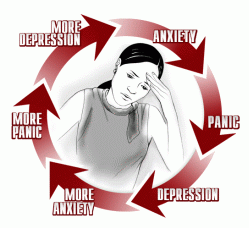Dr. Dawn-Elise Snipes PhD, LPC-MHSP, LMHC
Executive Director: AllCEUs.com
Podcast Host: Counselor Toolbox and Happiness Isn’t Brain Surgery
Become a member at DocSnipes.com to be able to chat with Doc Snipes via text or video chat.
Where do emotions come from? What makes you feel hungry? Why is it easier for you to focus and concentrate some days rather than others? How does your body know when it is time to sleep?
Your brain is the main control center of the body. You experience the world through your senses. When the sensory input reaches the brain it figures out what the information means, based on prior learning experiences, and what to do about it. For example, when you are driving and you see a yellow light, based on your prior experiences, your body sends the signals out to either slow down or speed up.
Throughout your life you are learning. When something happens and you experience pain, your brain files that away in the “let’s not do that again” folder. When something produces a rush of euphoria, your brain puts that in the “I want to do it again (and again)” folder.
Important points
- The body takes in stimuli that is seen, felt, tasted, or heard (including what is told to us)
- The brain weaves together the stimuli into memories/experiences and creates a library
- The brain can only make decisions based on prior learning experiences
- When the brain receives stimuli, it processes the information, “decides” what to do and sends the message back out to the body.
- We are born with certain pre-programmed feelings and reactions.
- Anger and fear are the brain’s responses to threats. Happiness is the brain’s response to something that will (theoretically) ensure survival. Infants experience and express all three of these.
- When held in an embrace people secrete oxytocin aka the bonding/calming chemical.
- Sadness is a learned response to powerlessness. Sadness develops over time. Babies experience fear, anger and happiness, but do not really have a concept of powerlessness, sadness or depression. After all, they have power over nothing…yet.
- The brain responds to stimuli in the environment to cause the body to feel sensations of hunger, sleepiness, pain and motivation
- The brain needs to have accurate and complete information from the body to effectively direct the body’s reactions….therein is where problems are created.
Most people assume that depression, anxiety and even happiness are either caused by brain chemicals OR your thoughts. In reality, it is both. When your brain receives information that there is a threat, it sends out the all hands on deck signal to your body. You feel angry or anxious. Your body is preparing to fight or flee. However, if you have failed to stockpile your reserves, when the brain sends out that signal, there may not be enough supplies to fend off the threat, which leads to what many of us call depression. There are several other scenarios to consider, but the take-home message is that happiness requires a combination of a healthy lifestyle and a healthy perspective. You may have experienced tragedy, done things you feel guilty for, have resentments and a way of looking at the world that may keep you stuck feeling bad. Those things had an impact, but they do not have to keep having an impact.

